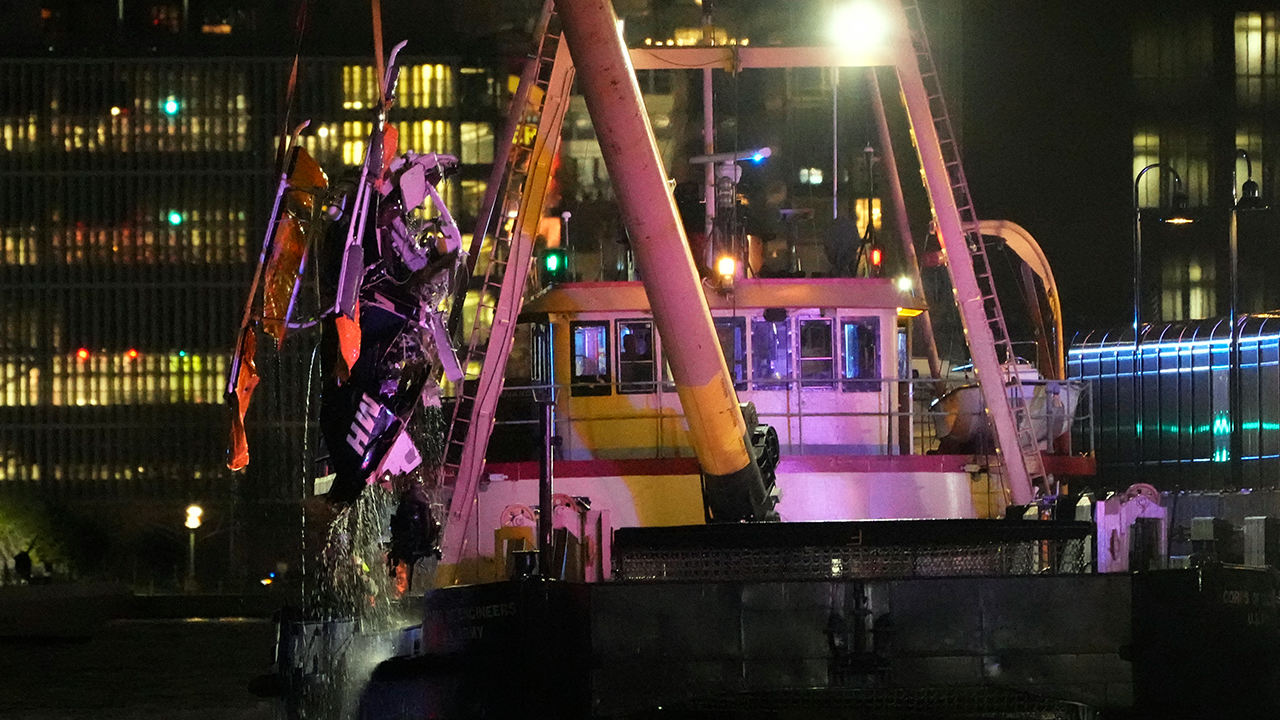Woman charged with fatal DUI crash on I-95 in Philadelphia was in hands-free driving mode: police
PHILADELPHIA (WPVI) -- The woman who is facing charges in connection with a multi-vehicle crash on I-95 that left two people dead in Philadelphia back in March has turned herself in.
Police alleged she was under the influence of alcohol and in the vehicle's hands-free driving mode at the time of the crash.
Dimple Patel a 23-year-old pre-med student from Philadelphia, was charged on August 28 with DUI, tampering with evidence, reckless driving, homicide by vehicle, and other related charges.
She surrendered to state police on Tuesday morning.
The crash happened around 3:15 a.m. on March 3.
According to police, a red Prius was disabled on the left shoulder and sitting slightly in the left lane.
A gray Hyundai Elantra was directly behind the Prius, authorities say.
Investigators believe the Hyundai's driver, identified as Tolobek Esenbekov, was assisting the Prius driver, Aktilek Baktybekov.
Police say Baktybekov was standing in the roadway near the front of the Elantra and Esenbekov was getting out of the car when the crash occurred.
That's when Patel, who was driving a 2022 yellow Ford Mustang Mach-E, allegedly struck the back of the Hyundai.
Investigators say she was going 71 to 72 mph when it happened and was using the BlueCruise hands-free driving feature and Adaptive Cruise Control systems.
The collision caused a four-car crash, with Baktybekov and Esenbekov both being struck.
Both Baktybekov and Esenbekov later died from their injuries.
In a statement Tuesday, Pennsylvania State Police said that drivers using advanced technologies should be prepared to resume control at all times.
"No partially automated vehicle technology should ever be left alone to perform the driving tasks that are required to safely navigate the roads of the commonwealth," the agency said.
Ford's Blue Cruise system allows drivers to take their hands off the steering wheel while it handles steering, braking and acceleration on highways. The company says the system isn't fully autonomous and it monitors drivers to make sure they pay attention to the road.
Defense lawyer Zak Goldstein said he had not yet seen the criminal complaint or any reports on the crash, and called the deaths a tragedy. However, he noted that, broadly speaking, Pennsylvania law on DUI-related homicides requires "that the DUI caused the homicide."
"If in fact it's a failure in a self-driving or a driving system, that may not be a homicide by DUI even if the driver is intoxicated," he said, adding that he has not seen any case law on the issue in Pennsylvania.
Ford has said it was collaborating with the state police, the NTSB and the National Highway Traffic Safety Administration in reviewing the crash.
When it opened a probe of the Philadelphia crash, and another in San Antonio, involving Blue Cruise, NHTSA said both occurred on freeways in nighttime lighting conditions, and that Blue Cruise was in use just before the collisions.
The agency said it is looking into how Blue Cruise performs driving tasks as well as its camera-based driver monitoring system.
Both NHTSA and the NTSB have investigated multiple previous crashes involving partially automated driving systems.
In April, NHTSA began investigating whether Tesla's fix for a December recall involving more than 2 million vehicles equipped with the company's Autopilot partially automated system took care of the problem. The recall was done because the driver monitoring system was inadequate and posed a safety risk.
NHTSA said that from January 2018 to August 2023, it found 956 crashes involving Autopilot and Tesla's "Full Self Driving" systems resulting in 29 deaths.
The Associated Press contributed to this report.











